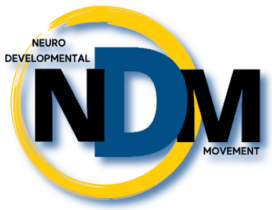Every week we see new posts online about conferences, discussions, and classes on trauma. It seems to be the hot topic of the moment. The film, The Wisdom of Trauma, which I cannot recommend highly enough to those who have not seen it, and the Biology of Trauma online conference, at which I am a speaker, (see below for links to both of these) address this topic of trauma. Everyone is talking about trauma. And we have so much that traumatizes us right now, from the pandemic, to the troublesome social discourse that makes enemies of our neighbors and acquaintances, from the consequences of global warming, to microplastics in our food. Where can we find safety?
I don’t believe that there has ever been a generation that has not had its burden of trauma. How have we coped in the past? Why do we seem to be doing so poorly in coping now? While there are many brilliant people in my FB groups who could offer many theories, I would like to propose one, from the perspective of a NeuroDevelopmental Movement® Consultant: We are more traumatized as adults because we are the product of a culture that has forgotten how to raise children to become resilient individuals, in a resilient family, that is part of a resilient society.
Children who are raised in emotionally coherent families, who are given the opportunity to complete the Developmental Sequence, those movements, reflexes and sensory experiences that literally create brain organization – those children have the capacity to deal with stress and loss without the deep overwhelm that puts trauma as the defining core of their life.
Over 35 years, I have come to understand how deeply we predispose our children to their lifelong hormonal set point in the first days, weeks, and months of life. I would propose that a child who is encouraged to go through the Developmental Sequence, in the context of a loving family, will be more able to put difficult circumstances into perspective and overcome them. This will be a child more disposed to create oxytocin, dopamine, and serotonin, which will lead to the sense of safety that supports curiosity, learning, healthy trusting social interactions, bonding, and regulation.
I would further propose that a child who is restrained, does not get the chance to simulate their neurodevelopmental system processes, and is in a stressed family who cannot comfort them in their distress, is more disposed to stress hormones such as cortisol. A cortisol-based brain is likely to live in a state of flight/fight, to be unable to bond fully, to have less ability to take in new information and learn. This child may become fearful and may grow to become socially anxious, unable to process sensory input, or regulate.
It is our constant hope that each new child born into the world is born into a healthy family, to parents who themselves had healthy beginnings.
It is our constant message that each of these children, to fully develop their brain in the way nature has designed, should be allowed to move, to experiment with their body, to be touched, loved, and free to establish their own agency in the world, free of physical abuse (including spanking), rejection, emotional violence, and neglect.
NeuroDevelopmental Movement® Consultants work with children who did not have these healthy beginnings, the beginnings that should have been their birthright. We have as our goal replicating the Developmental Sequence, which often has as a consequence, a resetting of the response to trauma. We work at a pre-verbal, pre-cognitive level so that those unspoken, seemingly inaccessible traumas can be addressed.
As we move into the future, we hope to help other families, childcare agencies, schools, medical practitioners, and governmental bodies understand that the key to the greatest challenges in our time may lie in these very simple tools – giving babies a healthy environment in which to thrive in the context of an economic, political, and social milieu that supports mothers and fathers to create healthy beginnings and healthy families. If your children are suffering with an anxiety disorder, or the sequelae of anxiety (learning disabilities, dysregulation, “oppositional behaviors”, sensory processing and social phobia issues, even self harm and suicidal ideation), please contact a NeuroDevelopmental Movement® Consultant

